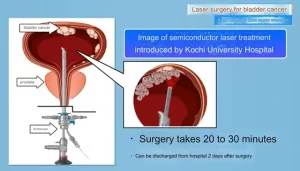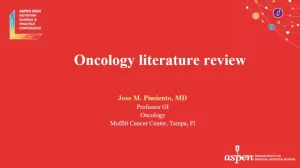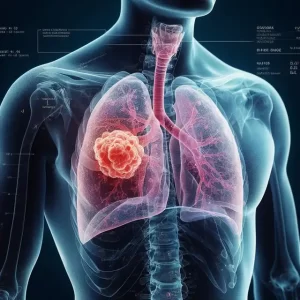Intermittent fasting promotes repair of nerve damage by altering gut microbiota
- EPA Announces First-Ever Regulation for “Forever Chemicals” in Drinking Water
- Kochi University pioneers outpatient bladder cancer treatment using semiconductor lasers
- ASPEN 2024: Nutritional Therapy Strategies for Cancer and Critically Ill Patients
- Which lung cancer patients can benefit from neoadjuvant immunotherapy?
- Heme Iron Absorption: Why Meat Matters for Women’s Iron Needs
- “Miracle Weight-loss Drug” Semaglutide Is Not Always Effective
Intermittent fasting promotes repair of nerve damage by altering gut microbiota
- Red Yeast Rice Scare Grips Japan: Over 114 Hospitalized and 5 Deaths
- Long COVID Brain Fog: Blood-Brain Barrier Damage and Persistent Inflammation
- FDA has mandated a top-level black box warning for all marketed CAR-T therapies
- Can people with high blood pressure eat peanuts?
- What is the difference between dopamine and dobutamine?
- How long can the patient live after heart stent surgery?
Nature: Intermittent fasting promotes repair of nerve damage by altering gut microbiota
The regenerative potential of neurons in the peripheral nervous system (nervous system other than the brain and spinal cord) after injury in mammals and humans is severely limited by the slow rate of axonal regeneration.
Exercise and environmental factors can affect the signaling pathways of axon regeneration, some of which can be activated by intermittent fasting (IF) .
Intermittent fasting , which alternates between fasting and feeding, has been shown in many studies to prolong the lifespan of a variety of experimental organisms .
Numerous prospective clinical trials have also shown that fasting reduces risk factors for diseases associated with aging, including cardiovascular disease, diabetes, and cancer.
Fasting can also increase resistance to various oxidative stresses, such as acute surgical stress. In addition, there are studies showing that fasting can enhance the effect of cancer treatment.
However, whether intermittent fasting affects the ability of neurons to regenerate axons remains to be explored.
Recently, researchers from Imperial College London published a research paper entitled: The gut metabolite indole-3 propionate promotes nerve regeneration and repair in the top international academic journal Nature .
This study is the first to demonstrate that 3-indolepropionic acid (IPA ) , a metabolite of the gut microbiota Clostridium sporogenes, is required for neuronal axon regeneration , and intermittent fasting can alter gut microbiota activity and promote IPA , thereby significantly enhancing axonal regeneration and accelerating the recovery of sensory function.
Moreover, oral IPA can exert this promoting effect .
The research team said that the study was conducted in mice, but the IPA-producing Clostridium sporogenes is also present in the human gut flora, and IPA is also present in human blood, so this study is likely to have implications for humans. The same applies.

The study’s corresponding author, Professor Simone Di Giovanni of Imperial College, said that there is currently no effective treatment for patients with nerve damage other than surgical reconstruction, and surgical reconstruction is only effective in a small number of cases.
Therefore, the research team tried To investigate whether lifestyle changes contribute to recovery after nerve injury.
Previous research has linked intermittent fasting to wound repair and the growth of new neurons, and this study is the first to pinpoint exactly how fasting aids nerve repair.
The research team used a model of mice whose sciatic nerves , the longest neurons that run from the spine to the legs, were surgically severed.
Half of the mice underwent intermittent fasting (using a strategy of eating ad libitum the day and fasting the next day) , and the other half fasted unrestrictedly.
These diets were continued for 10 or 30 days before surgery, and their neuronal recovery was measured within 24-72 hours after surgery.
By measuring the length of the regrown axons, the team found that in the intermittently fasted mice, their axon length increased by about 50 percent.
The research team further investigated how intermittent fasting causes this nerve regeneration.
They found that the blood of intermittently fasted mice had significantly higher levels of specific metabolites such as 3-indolepropionic acid (IPA ) . IPA is a metabolite of Clostridium sporogenes in the gut .
Next, to determine whether IPA was responsible for neuroreparation, the team treated the mice with antibiotics to clear their gut microbiota, and then transplanted either IPA-producing Clostridium sporogenes or genetically modified ones that couldn’t. of Clostridium sporogenes.
The results showed that when mice were devoid of C. sporogenes in their guts and the transplanted C. sporogenes could not produce IPA, their ability to regenerate nerves was impaired.
This suggests that the metabolite IPA of C. sporogenes has the ability to regenerate axons and repair nerve damage.

Mechanistically, a role for neutrophil chemotaxis in the IPA-dependent regenerative phenotype was demonstrated by RNA-sequencing analysis of the dorsal sciatic root ganglia, as demonstrated by inhibition of neutrophil chemotaxis.
These results demonstrate the ability of gut microbiota metabolites such as IPA to promote sensory axon regeneration and functional recovery through immune-mediated mechanisms.
What’s more, the research team administered oral IPA to mice after sciatic nerve injury and observed increased neuronal axon regeneration and recovery within two to three weeks after injury.
Professor Simone Di Giovanni said that this research opens up a whole new field, and the team’s follow-up goal is to investigate whether there are other metabolites that play a similar role, and whether IPA also increases after fasting in humans.
The role of axon regeneration, and whether repeated oral IPA can maximize the therapeutic effect.
Paper link :
https://www.nature.com/articles/s41586-022-04884-x
Nature: Intermittent fasting promotes repair of nerve damage by altering gut microbiota
(source:internet, reference only)
Disclaimer of medicaltrend.org
Important Note: The information provided is for informational purposes only and should not be considered as medical advice.



